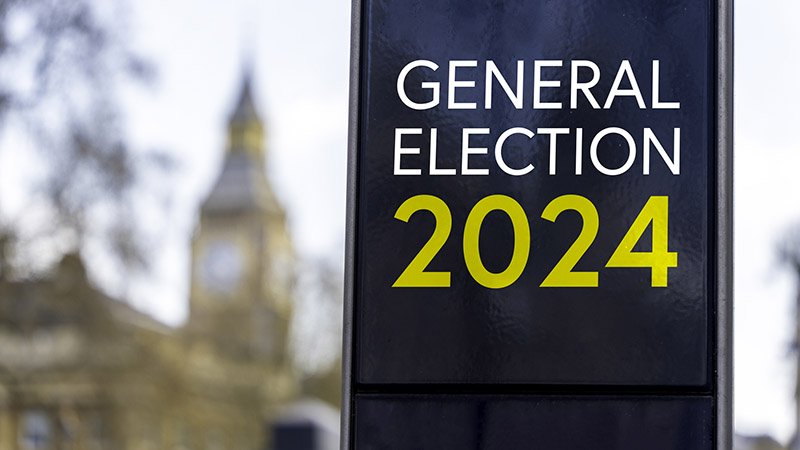After UK prime minister Rishi Sunak last week confirmed a general election will take place on 4 July, investors across the board have said whoever forms the next government needs to keep sustainability solutions at the forefront of the UK’s national agenda.
Recently, the Institutional Investors Group on Climate Change called on the government to accelerate net-zero transition plans, outlining priorities for policymakers to “pivot permanently towards decarbonisation”. Meanwhile, a UKSIF report warned the UK’s position as a world leader in green finance was “under threat”.
Rahul Bhushan, managing director of ARK Invest Europe, said he’s keen to see all parties prioritise further investment in renewable energy infrastructure.
“The UK has made significant strides, with renewable energy now providing over 40% of the country’s electricity. Additionally, recent figures indicate offshore wind capacity has increased by 60% over the past five years, making the UK a global leader in this field. To build on this progress, future leaders need to focus on policies that support continued growth in renewables, such as solar and wind power, and the development of green technologies such as battery storage.
“Ensuring a greener and more resilient future for the UK not only addresses climate change but will also crucially create jobs – as we have seen in the US with the passing of the flagship Inflation Reduction Act – and drive economic growth.”
Likewise, Andrew Parry, head of investments at JO Hambro Capital Management, said he’s hoping for an end to policy paralysis: “There’s an unresolved tension between energy security and net zero, food security and environmental resilience. Labour shelving their £28bn green energy commitment illustrates this challenge, as politicians wrestle with reconciling fiscal reality with climate ambitions.
“However, generally the market is relaxed about a change of government as it’s been so well flagged; there might even be a sense of relief.”
More reaction
Steve Malkin, CEO and founder of Planet Mark, said this election marks a pivotal moment for the UK’s climate efforts: “The next government will be sitting in power for up to five years, and these years are critical to climate action. We require leaders who are committed to prioritising net zero in policy decisions and who can craft an inspiring narrative to engage the entire nation in this transition.
“Through our work with hundreds of organisations, particularly SMEs, it’s clear they recognise their responsibility in achieving net zero. However, they require government assistance to facilitate the transition they’ve already begun. This includes a clear timeline for SME emissions measurement and the resources that will enable them to meet these requirements, as well as providing financial incentives and support to encourage participation in sustainability initiatives as a whole. The UK can be a leader in net zero for the world and this election provides an opportunity to get this right.”
Paul Drummond, climate and environment research lead at Redwheel, added the next government “faces challenges on multiple fronts”, and that a clear, consistent, and stable policy environment – with just transition principles clearly embedded – is crucial to attract the volume and pace of private investment needed.
“The energy transition is deeply entwined with national security and economic competitiveness. A clear priority should be to develop a comprehensive Green Industrial Strategy that responds to the US Inflation Reduction Act and the EU’s Green Deal, and which focuses policy support and strategic investment in areas in which the UK can build on existing strengths,” Drummond continued.
“As the foundation for decarbonisation in all sectors, reducing barriers to electricity grid development as quickly as possible is also vital, coupled with establishing a roadmap toward a new electricity market design suited to a renewables-based grid and an electrifying economy.
“The new government should also commit to developing a clear roadmap for climate adaption and resilience in the UK. This includes an assessment of financing needs, measures to attract investment and ongoing risk monitoring. Biodiversity and nature protection and enhancement should be included as core pillars of effective adaptation and resilience. These strategies must be delivered together through a coordinated, whole-of-government approach.”
This story originated on our sister title, PA Future.











